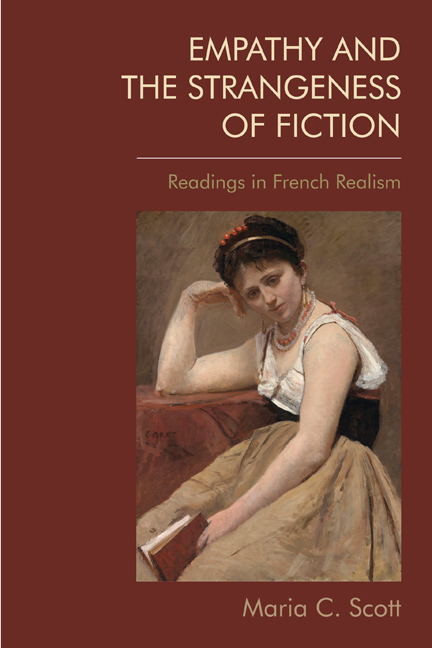Book contents
- Frontmatter
- Contents
- Dedication
- 1 Does Reading Fiction Boost Empathy? Psychological Approaches
- 2 Literary Approaches to Empathy
- 3 Fictional Strangers and the Strangeness of Fiction
- 4 Balzac: The Limits of Transparency and the Dangers of Opacity
- 5 Stendhal and the Two Opposing Demands
- 6 Sand and the Necessity of Suspicion
- 7 Towards an Empathetic Ethics of Fiction-Reading
- Bibliography
- Index
4 - Balzac: The Limits of Transparency and the Dangers of Opacity
Published online by Cambridge University Press: 17 October 2020
- Frontmatter
- Contents
- Dedication
- 1 Does Reading Fiction Boost Empathy? Psychological Approaches
- 2 Literary Approaches to Empathy
- 3 Fictional Strangers and the Strangeness of Fiction
- 4 Balzac: The Limits of Transparency and the Dangers of Opacity
- 5 Stendhal and the Two Opposing Demands
- 6 Sand and the Necessity of Suspicion
- 7 Towards an Empathetic Ethics of Fiction-Reading
- Bibliography
- Index
Summary
In one of Balzac's novels, he personifies the nineteenth century as a questing surgeon or archaeologist:
There played out in La Baudraye one of those long and monotonous conjugal tragedies that would remain unknown for all eternity if the avid scalpel of the nineteenth century, driven by the need to find the new, did not go searching in the darkest corners of the heart or, if you prefer, those parts that the discretion of previous centuries had respected.
As this passage indirectly suggests, Balzac's century was a time of accelerated scientific discovery: it saw revolutionary advances in the medical understanding of disease, for example, and in the fields of archaeology and palaeontology. It is no coincidence that hieroglyphs are referenced so frequently in Balzac's novels: the author was a contemporary of Jean-François Champollion, who in the 1820s effectively completed the decryption of the Rosetta Stone, thereby unlocking the secrets of hieroglyphic script. Indeed, Balzac considered his own role as a writer to be one of quasi-scientific exploration; he compared his novelistic project to the investigations undertaken by his older contemporary, the French zoologist Geoffroy Saint-Hilaire, and used the metaphor of the scalpel, tacitly in the above passage and more explicitly elsewhere, to describe the observational skills of the novelist.
Balzac's writerly scalpel was just as avid and as lacking in discretion as the one he attributes to the nineteenth century in the passage quoted above. Not only are his novels driven by a desire for knowledge, they also appeal very shrewdly to the reader's own curiosity. Barthes has written about the operation of what he calls the hermeneutic code in the classic (and, as it happens, Balzacian) novel: this is the set of textual elements that both construct a question and then lead towards– and present obstacles to– its answer. Balzac's novels characteristically present enigmas, which they then proceed to solve, thereby following the basic structure of a detective novel (not coincidentally an invention of the nineteenth century) or, as Barthes puts it, a striptease (which also, as it happens, has its origins in the nineteenth century).
- Type
- Chapter
- Information
- Empathy and the Strangeness of FictionReadings in French Realism, pp. 65 - 105Publisher: Edinburgh University PressPrint publication year: 2020



